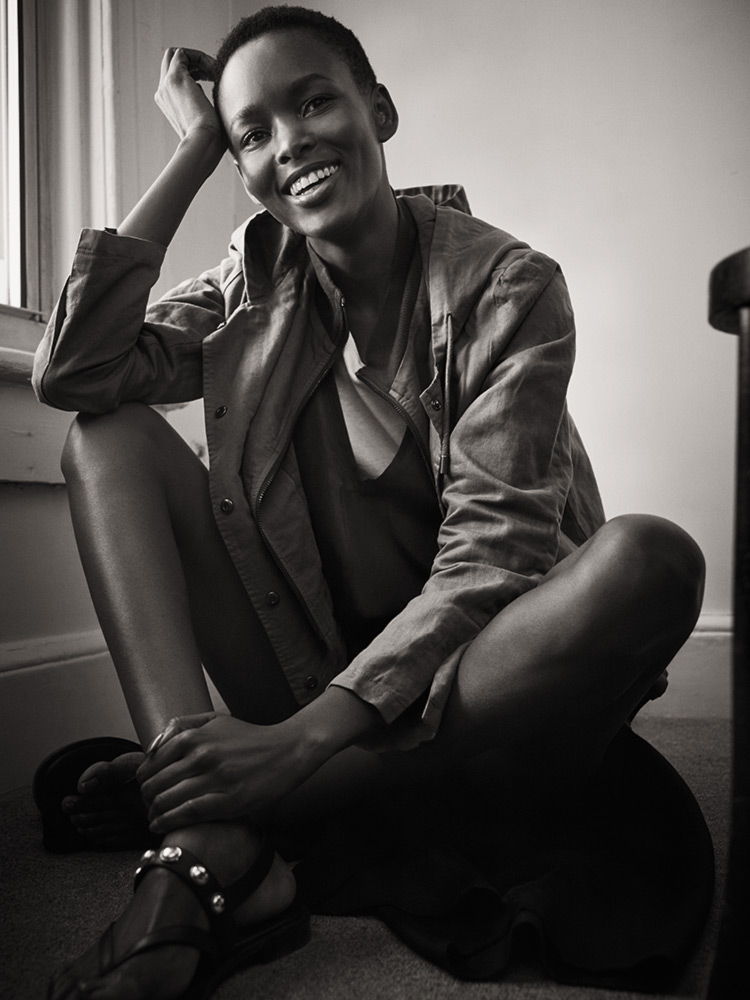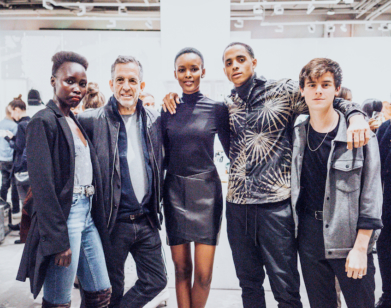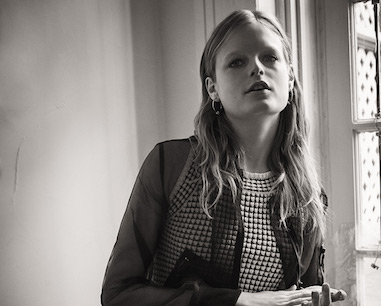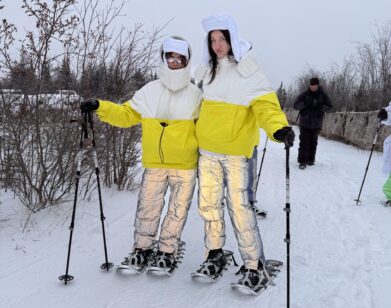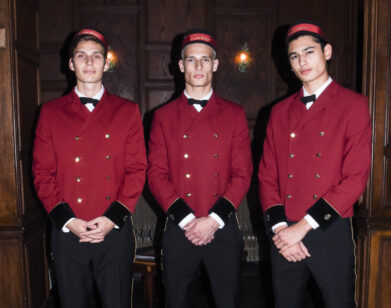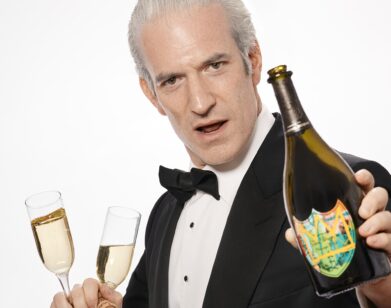LGBTQ+ activist Connor Franta and model Flaviana Matata on fighting for inclusivity
In the spirit of inclusivity and acceptance, Interview has teamed up with Kenneth Cole’s courageous class, four pioneers with a platform who get off on giving back.
Most closeted kids dip their toes into the coming out process. They confide in a friend, maybe, or a family member. But Connor Franta had another idea. In 2014, at the age of 22, he posted a video entitled “Coming Out” on YouTube, which has now racked up nearly 12 million views. The massively popular influencer, author, and entrepreneur has since become a vital—and unapologetically vocal—figure in the fight for LGBTQ+ rights. Most dear to him is the organization GLSEN, which supports queer youth in K-12 schools.
As a top model, Flaviana Matata, 30, has similarly turned her platform into a way to help others. In 2011, she created the Flaviana Matata Foundation, which provides scholarships and support to schools and girls in her native Tanzania. When not walking runways or starring in major ad campaigns (including for her own nail polish line, Lavy Products), she has also donated her time to several other charities enabling education in Africa. The two powerhouse millennials spoke recently about their different passions—and what unites them.
CONNOR FRANTA: You were Miss Universe Tanzania? That’s crazy.
FLAVIANA MATATA: [laughs] It was crazy! But it got me to where I am today.
FRANTA: How did you get involved with the education of girls in Africa?
MATATA: I’d been doing charity work for quite some time, even before I started modeling. I got scouted immediately after I graduated school, and I had the option to either continue my studies or pursue modeling as a career, and I decided to pursue modeling. I started thinking about all those girls back home who just want to be in school, but can’t. Especially in Tanzania, education is just not a priority for girls. So I wanted to give back to my community and to empower these girls through education.
FRANTA: I work with a lot of foundations, but they’re not mine. What’s it like having your own? What do you find most rewarding about that?
MATATA: We work on the community level, so we connect with people directly. It’s not some operation from afar. We get to see how we’re changing girls’ lives. Our first bunch of girls are now in their last year of high school. How did you get involved with GLSEN?
FRANTA: I grew up in a very small town in Minnesota. I never really had a creative outlet, although I was a very creative person. I didn’t have much exposure to people like me. But on YouTube, I found a community of people that I didn’t have in my hometown. That’s why I connected with GLSEN so much—I want to help further that process for other kids, and GLSEN is an amazing organization that essentially helps bring kids together: straight kids, bi kids, trans kids, gay kids, everyone. I was like, “I wish I’d had that growing up.”
MATATA: What kind of stuff do you do for them?
FRANTA: I’ve raised a lot of money for them. A lot of these organizations, at the core of it, just need funds, and I have a large platform of people eager to jump on things that I’m passionate about. I use my birthday because people are always saying they want to give me presents, which is really flattering, but I’m like, “The best birthday present you can give me is a donation that will go to somebody else. I’m fine, but your money or your time can help somebody else.” And I’ve spoken at a bunch of their events. It’s been an amazing thing.
MATATA: Was your family supportive, or was it difficult for them to accept who you are?
FRANTA: I had it really easy. My whole family—every single one of my direct family members, and all of my friends—is super supportive. It was always just an internal battle, me fighting myself for some reason.
MATATA: A friend of mine, a brilliant kid back in Tanzania, has been having a difficult time with his family, so I think you should consider expanding what you’re doing to Africa. The communities there are still very resistant when it comes to this.
FRANTA: Totally. It’s a massive process. How many girls has your foundation worked with?
MATATA: We have three different projects. We have a scholarship project that started with 20 girls. We also provide school supplies to more than 4,000 kids in rural areas in Tanzania. And we support school infrastructure, which means if a school doesn’t have classrooms, if they don’t have toilets, we’ll help build them. Kenneth Cole actually donated money to build two classrooms and an office for the teachers.
FRANTA: It seems like we’re both drawn to helping young people and changing the future through young people. You’re helping younger girls get set up for a better future; I’m trying to help young LGBTQ+ kids do the same.
MATATA: Sometimes you just need someone to hold your hand, believe in your dream, and help you.
SEE MORE FROM OUR COURAGEOUS CLASS SERIES, FEATURING MODEL AND SON OF SNOOP DOGG, CORNELL BROADUS, AND INTERSEX ACTIVIST HANNE GABY ODIELE.

